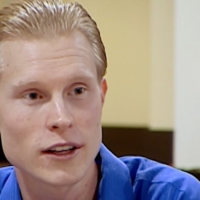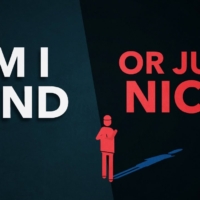How Doctors Tell Patients They’re Dying | Being Mortal | FRONTLINE
00:00:03
(siren wailing) NARRATOR: When serious illnesses take us to hospitals, we look to doctors for answers.
00:00:13
But what happens when there are no more cures? – Do you want to call her daughter? NARRATOR: Zara Cooper is an emergency surgeon with palliative care training at Brigham and Women’s Hospital in Boston.
00:00:25
She frequently must deal with patients surprised that they’re nearing the end of life. – It’s certain that everybody’s gonna die. There’s no certainty as to when.
00:00:34
It’s not clear from the CT scan what’s going on… And frequently, as an emergency surgeon, I’m meeting somebody for the first time, and they have no idea that they could die from their disease.
00:00:44
Whether that’s because nobody’s told them or they’re in denial, I don’t know, but it’s always a surprise.
00:00:49
NARRATOR: Clyde Earle has been undergoing treatment for advanced cancer for a year. He’s now suffering with intense pain.
00:00:57
The prognosis is not good.
00:00:59
– Well, you’re in good hands here with Dr. Cooper. – I know.
00:01:02
NARRATOR: Dr. Cooper wants to talk to Mr. Earle and his wife Audrey about what comes next. – So the rumor has it you guys are newlyweds, is that right? – Yeah, in March.
00:01:11
– That’s great.
00:01:13
Now, what happened before you came in to the hospital? – One morning, I had so much pain, I could not take it. I was in deep trouble with pain. – About 3:30 in the morning.
00:01:27
– What I discovered was that he and his wife had the expectation that he had many more months. – So let me ask you, what do we expect to happen after you leave the hospital? – We’re going fishing. – Okay.
00:01:40
– We’re going up to the house in Maine.
00:01:42
And then after Maine, we’ll go back to the house in Florida.
00:01:46
– Right.
00:01:47
– Now, has anybody talked to you about hospice or having hospice nurses take care of you? Is that part of the plan? – When and if we need it, I know the procedure. – Yeah.
00:01:59
When I said “hospice,” it was as if I was talking to somebody who only thought that hospice would be necessary when he was just about to die.
00:02:07
My impression was that that was the goal, was to get him to hospice.
00:02:11
I think the lesson learned is that you have to ask. You can’t make those assumptions because oftentimes, patients and their families aren’t at all where you think they are and aren’t at all where you think they should be.
00:02:23
NARRATOR: But Zara Cooper had at least started a conversation about the end of life.
00:02:27
– We are here to take care of you, okay? – Okay.
00:02:31
– All right.
00:02:32
NARRATOR: As Clyde Earle’s condition worsens, Dr. Cooper brought in Kathy Selvaggi, a senior palliative care physician whose expertise is in end-of-life care.
00:02:41
She would now take up the hospice discussion.
00:02:44
– She and I had a conversation about goals of care, and…
00:02:49
– When Dr. Selvaggi came down to the ICU to meet them, I said, you know, “You’ve got a lot of work to do.” She said, “I know.” – It was really important to take his wife aside and talk about what I was seeing. – Hi.
00:03:06
– How are you, Audrey? – Let’s not even ask questions like that.
00:03:11
– I know, I know. Clyde, good morning. – (moaning) – It’s been… like this. (whispering) I don’t like it. – I know you don’t.
00:03:45
– I don’t like it at all.
00:03:47
– It is a process, and I think, you know, it is very hard to come to the realization that you’re dying. These are really important conversations that should not be waiting the last week of someone’s life. I’m not sure I’m gonna get him back to Maine. – We’re not. Let’s face the truth.
00:04:07
– I don’t think we are.
00:04:09
– No.
00:04:10
– I think he’s gonna be here with us.
00:04:12
– Yeah, I know he is.
00:04:15
I guess I was in my own world, thinking if they could fix. In my heart, though, I knew better.
00:04:28
I knew what was ahead. And I didn’t share it with him. – It’s those moments when people show that they want to talk about it.
00:04:40
Once somebody gives you that kind of opening, in palliative care, we’re trained to take that opening and to identify that as a moment where you can help somebody, whereas I think the natural inclination is to say, “We’re gonna get him better and you’re gonna get him home,” because it makes you feel better. – I love you.
00:05:03
– I love you.
00:05:04
– I love you, honey.













